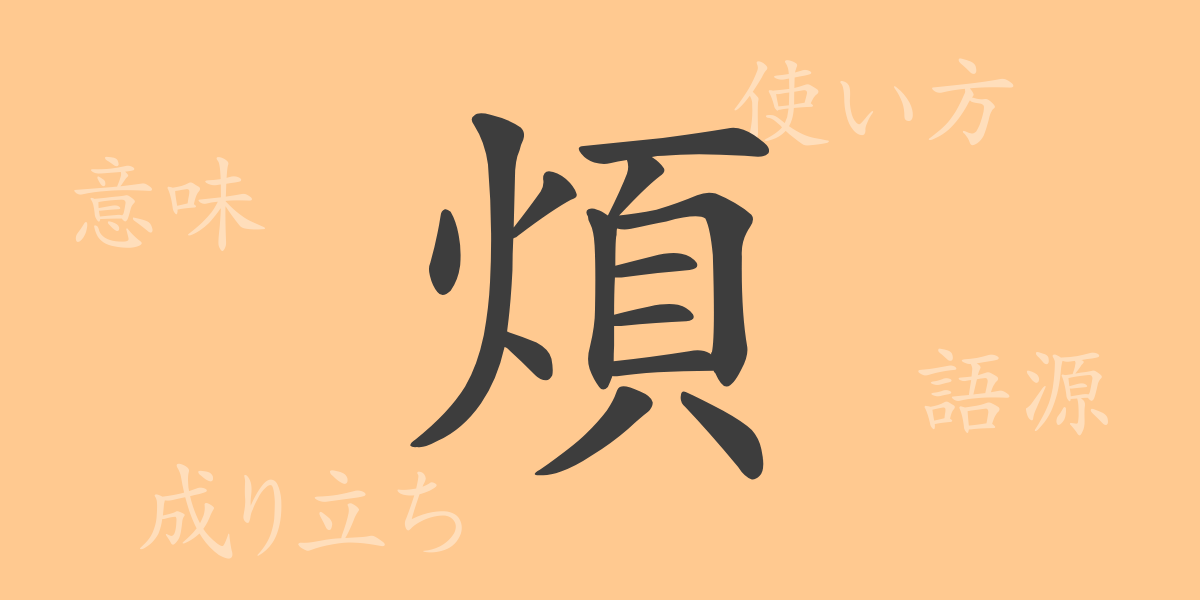In Japanese, there is a rich vocabulary to express emotions and situations. Among them, the kanji “煩” (han) is often used to represent deeply ingrained feelings and states of mind in our daily lives. This article delves into the charm of “煩” (han), from its origin and meaning to its usage, idioms, and proverbs.
Origin of 煩 (han)
The kanji “煩” (han) is composed of the radical “火” (hi), meaning flame, and the phonetic component “頁” (ge), which originally meant “head.” The combination of “火” (hi) above “頁” (ge) symbolizes the burning annoyance or suffering within the mind. Thus, “煩” (han) has come to be used as a kanji representing complex internal emotions and states.
Meaning and Usage of 煩 (han)
The kanji “煩” (han) carries meanings such as “troublesome,” “to worry,” and “complicated.” In daily conversations, literature, and business contexts, it is commonly used to refer to worries or troublesome matters. For example, expressions like “煩わしい手続き” (wazurawashii tetsuzuki) meaning “troublesome procedures” and “心煩わせる” (kokoro wazurawaseru) meaning “to trouble the heart” are used.
Reading, Stroke Count, and Radical of 煩 (han)
Here is the basic information about the kanji “煩” (han):
- Readings: The on’yomi (音読み) readings are “ハン” (han) and “ボン” (bon), while the kun’yomi (訓読み) readings are “わずらう” (wazurau) and “わずらわしい” (wazurawashii).
- Stroke count: The kanji “煩” (han) consists of 18 strokes.
- Radical: The radical of “煩” (han) is the 火部 (kabu), and it is categorized under the 火偏 (hihen) in kanji dictionaries.
Idioms, Proverbs, and Expressions Using 煩 (han)
Here are some idioms, proverbs, and expressions that include the kanji “煩” (han):
- 煩悩 (bon’nou): A Buddhist term referring to mental disturbances such as delusions and desires.
- 煩雑 (hanzatsu): An adjective describing something that is complex and difficult to handle.
- 五十歩百歩 (gojippohyappo): A proverb meaning “the same state,” often used to avoid troublesome arguments.
Summary of 煩 (han)
The kanji “煩” (han) is well-suited to express complex emotions and states that arise within the human mind, showcasing the richness of Japanese expressions. Understanding its readings and meanings can lead to a deeper comprehension of the Japanese language. Additionally, learning idioms and proverbs that include “煩” (han) can expand your vocabulary, enabling more precise and rich expressions.

























